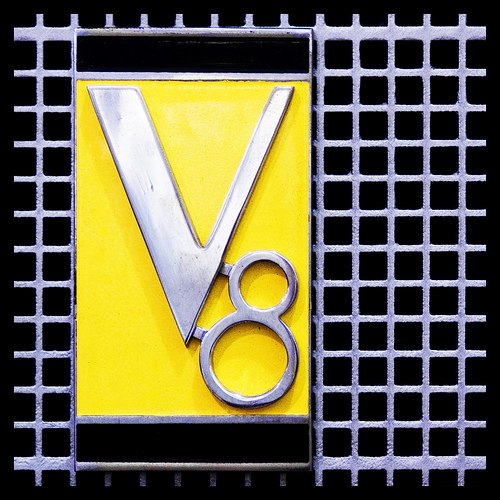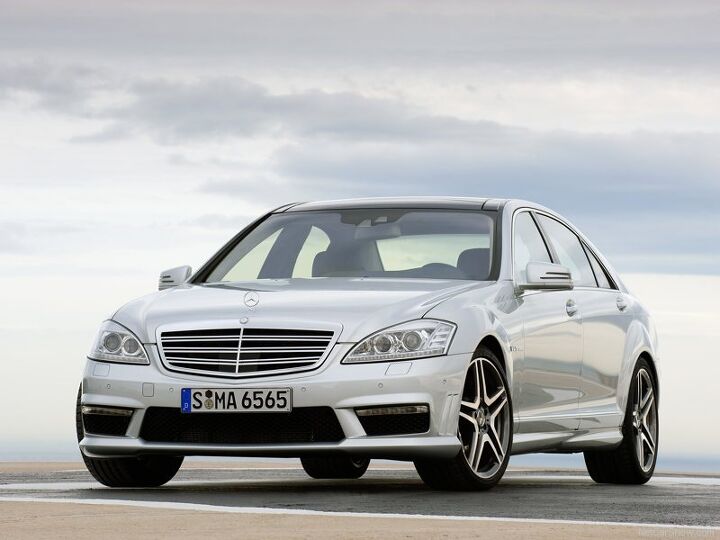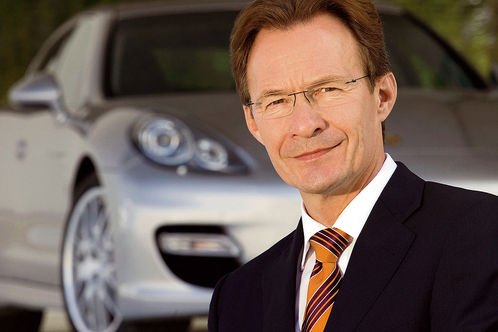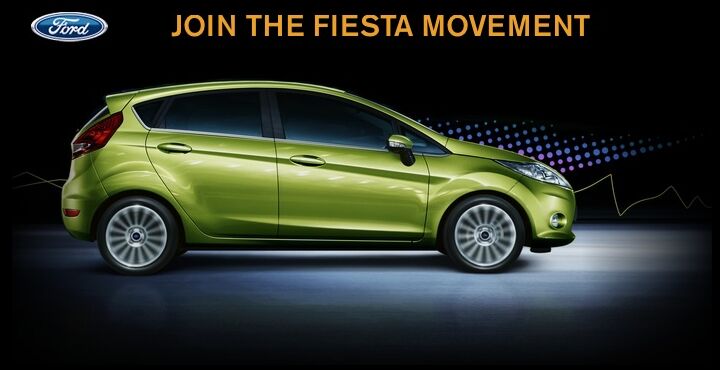#CAFE
Who's Afraid Of CAFE? Not Detroit
Hard on the heels of yesterday’s story on Hyundai’s preparation for CAFE standard ramp-ups comes this counterpoint, courtesy of the Detroit Free Press. Walter McManus, director of automotive analysis at the University of Michigan’s Transportation Research Institute, did his own study on a possible 43 MPG 2020 standard and his findings, as presented at a Citi Investment Research conference call, seem quite positive for American-based automakers. McManus’s research took several basic assumptions for granted in order to reach his conclusions, namely that
• Gas prices will average $4 a gallon between now and 2020.
• Industry sales will be 16.3 million vehicles in 2020.
• Every manufacturer complies with 2016 CAFÉ standard.
• Plug-in hybrids and electric vehicles will be less profitable than gas-engine vehicles.
Now, right off the bat it’s possible to take exception to some of those assumptions. If gas doesn’t crack four dollars per gallon before 2020, for example, this blogger will be one confused student of history. Also, predicting over 16m units of new car sales is by no means a sure thing. Though a comfortable industry assumption based on the “old normal,” there aren’t many indications that 16m+ annual new car sales was a sustainable level for the US economy. Still, Mr McManus has been doing this for a while, so we’ll give him the benefit of the doubt. So, given his assumptions, what does he foresee for Detroit as it moves to meet a 43 MPG standard by 2020? In two words: great success.
Should the 60 MPG Car Become The Law?
U.S. passenger vehicles emit about 20 percent of the nation’s carbon emissions and consume about 44 percent of its oil. With that in mind, the Obama administration will reveal (some time this week, Thursday probably) its proposal for fuel efficiency and emissions requirements for cars and light trucks for model years 2017 and beyond.
I See Millions Of Hybrids In Toyota's Future
Toyota launched their hybrid Prius in late 1997. 13 years later, Toyota has sold a total of about 2.6m hybrids, says The Nikkei [sub]. That mostly because it is the top selling car in Japan. And also “thanks to government subsidies that favor hybrids over other fuel-efficient cars,” as Automotive News [sub] remarks. Toyota doesn’t want to rest on its laurels.
Meanwhile, Back At The Farm: Ford Promises Flex-Fuel Bumper Crop
As TTAC readers well know: There is a huge E85 flex-fuel loophole in the new federal fuel economy CAFE standards. Ford will drive right through that barn door-sized hole.
By the end of this year, Ford wants to deliver 370,000 flex fuel vehicles, a number which they can trade against fuel oinkers. Let’s review: A flex-fuel vehicle is one that is capable of running on E-85. But it doesn’t have to. It can also run on straight gas. Or on any mixture of the two fuels. As long as it’s E85 capable, it counts at least for a Peppermint White Chocolate Mocha at the DC CAFE.
GM Bets Nearly $900m On Next-Gen V8s, Thanks To E85 Loophole
GOP Reps: Did The White House Pressure State-Owned Automakers Into Accepting GHG Standards?
With Senator Chuck Grassley (R-IA) already taking the White House and Treasury to task for possibly helping GM avoid paying the “TARP Tax,” Republican representatives Darrell Issa (R-CA) and Lamar Smith (R-TX) are attacking the auto bailout from another angle, writing a letter to nine automaker CEOs requesting clarification of the negotiating process that led to recently-passed final rules on a ramp-up of greenhouse gas (GHG) emissions standards. In their press release on the issue, Issa and Smith note:
It is unclear whether the Administration used leverage created by the possibility of a taxpayer bailout of GM and Chrysler to secure their cooperation and support for new fuel economy standards. Moreover, there is reason to believe Administration officials used inappropriate tactics to ensure broad based support across the industry. Given the clear conflict-of-interest issues at play, which naturally arise when the government is in a position to pick winners and losers and impact the future viability of private entities, it was imperative that the Administration act with the utmost transparency. Instead, the White House imposed an unprecedented level of secrecy.
Are Issa and Smith on to something, or is this simply a partisan dogpile on an unpopular policy? Hey, this is politics… does it even matter?
CAFE Claims Another Victim: The Mercedes S-Class
If Automotive News’ [sub] dealer sources have heard right, then Daimler might sacrifice their S-Class on the altar of the almighty EPA and its newly announced CAFE standards.
CAFE For Free
On April 1, new federal fuel economy CAFE standards went into effect. By 2016, new cars should get 35 mpg or thereabouts. The true number remains an exercise in abstract algebra. Says Consumer Reports: “The new standards require different fuel economy averages for each manufacturer and for each type of vehicle (such as small, midsized, and large sedans or SUVs).” There are plenty of loopholes and offsets. Extra credit for cars that take E85 Ethanol, for instance. And here is another huge loophole:
Porsche CEO: "What's Happening Here Borders On A Trade War"
In its fight against American CAFE rules, Porsche is ratcheting up the decibels. For background on Porsche’s beef, see here, and here. For a possible way out, see here.
Unconvinced by electrification plans, Porsche’s new boss Michael Macht publicly joined the fray. He doesn’t mince words. “What’s happening here borders on a trade war,” said Macht yesterday evening, while Das Autohaus took notes. “We’ll keep at it. The German auto industry will not give up territory over there unnecessarily.” Financial Times cited Macht as saying that “the Americans are spoiling for a fight.”
Why Obama Won't Take Your Porsche Away – Takes One, Two, Three And Four
Take One: The Ruf 911 Greenster EV. From AB Green’s report:
Last fall, Porsche high performance tuning specialist Ruf announced that it had built a prototype electric sports car called the eRuf which was essentially a lithium ion battery-powered 911. That was just the beginning of the story as the company has brought the Greenster here to Geneva. The Greenster is a targa top 911 in the old style with a chopped speedster type windshield. In the back sits a 270 kW Siemens electric motor with 695 lb-ft of torque. The battery pack system has been improved and is now 30 percent smaller in volume, restoring the front trunk space that was lost on the original. The battery pack now has greater power capacity allowing it to release and absorb power faster, enabling more regenerative braking capacity. The battery can apparently be charged in only one hour from a 400V outlet. The next iteration will switch to a twin motor setup and the company is planning a small series production run in 2010.
Porsche 911 have been a favorite target for EV conversions fir decades. Ruf’s version is almost series ready. It will probably have an EPA mpge rating similar to the Tesla’s 256 mpge. How many would Porsche have to sell to increase its fleet average to the amount necessary?
Obama Will Take Away Your Porsche, Take Two
When we reported a few days ago that Porsche would have serious trouble complying with the upcoming CAFE rules, and that the existence of Porsches on American roads may be in danger after 2016, the majority of the commentariat exploded: “Unbelievable!”
Obama Will Take Away Your Porsche
In a few years, by 2016 to be exact, P.J. O’Rourke’s “ass-engined Nazi slot car” may be history in the U.S.A. Gone. By that time, Porsche needs to have a Corporate Average Fuel Economy (CAFE) of 41.4 mpg – if President Obama gets his wish. Mission impossible, says Porsche. Jack Baruth, stock up. Porsches will be extinct.
Detroit: Japan's Cash-For-Clunker Program Unfair
To qualify for Japan’s cash-for-clunker program, new vehicles must meet the 2010 fuel economy standard of 35.5 mpg, making 87 percent of Japanese-made vehicles on sale in their home market eligible for the credit of up to $2,800. In fact, the Japanese program doesn’t even require a clunker (MY 1996 or older) to trade in, although without giving up an inefficient vehicle, the best credit available is a mere $1,132. But the American Automotive Policy Council calls these rules “unfair,” telling the Freep:
We urge the U.S. government to make clear that it cannot tolerate this outright discrimination, particularly at a time when it has provided substantial direct financial support for Japanese automakers in this market
Huh? Is the AAPC talking about America’s cash-for-clunker program, which (like Japan’s) sent Honda and Toyota sales soaring? Or the $1.6b DOE “ATVML” loans that Nissan got, which were dwarfed by the same program’s generosity towards Ford? Or perhaps the $82b+ TARP bailout that… oh wait, that all went to Detroit. Ok, let’s forget about America’s “substantial direct financial support for Japanese automakers” for a second and figure out just how unfair this Japanese program is.
Will CAFE Cause A Small Car Glut?
CSM Worldwide seems to think so, telling Automotive News [sub] that new compacts from Ford and Chevrolet are being pushed into the market to comply with increasing fuel-efficiency and CO2 emission standards. If gas prices stay steady, CSM’s VP for Forecasting, Michael Robinet says “extreme pressure to channel smaller vehicles in the market due to CAFE and emissions standards will raise incentives and lower profitability.” “It is very possible that U.S. automakers will not achieve their objectives of selling small cars at a profit,” adds CSM CEO Craig Cather. The crux of the argument is that CAFE ramp-ups to 35.5 MPG by 2016 create incentives for automakers to produce small cars without corresponding consumer demand. Luckily there’s a planned gas tax hike for that.





























Recent Comments